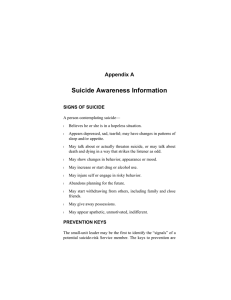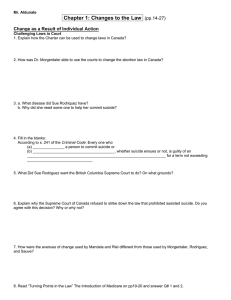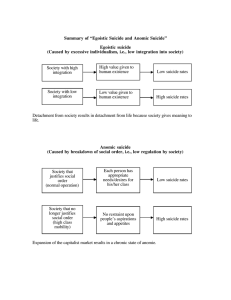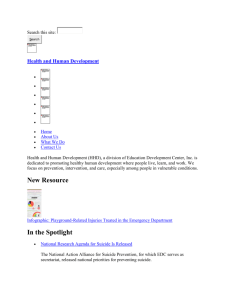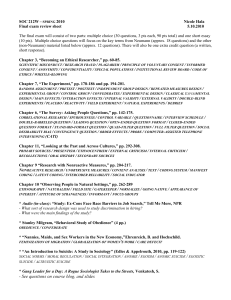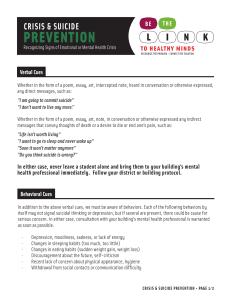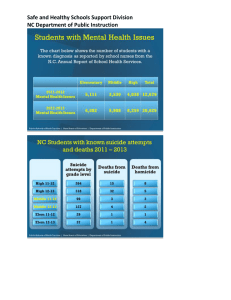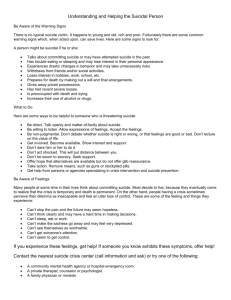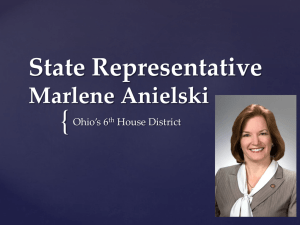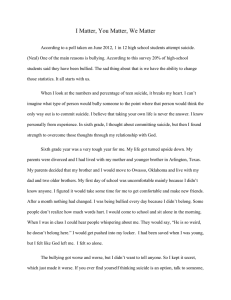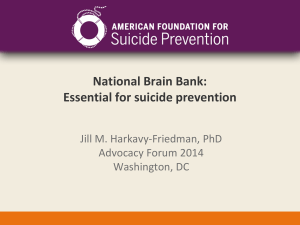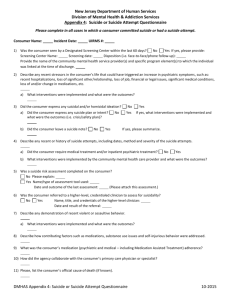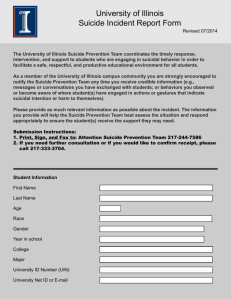Rodriguez.Notes
advertisement
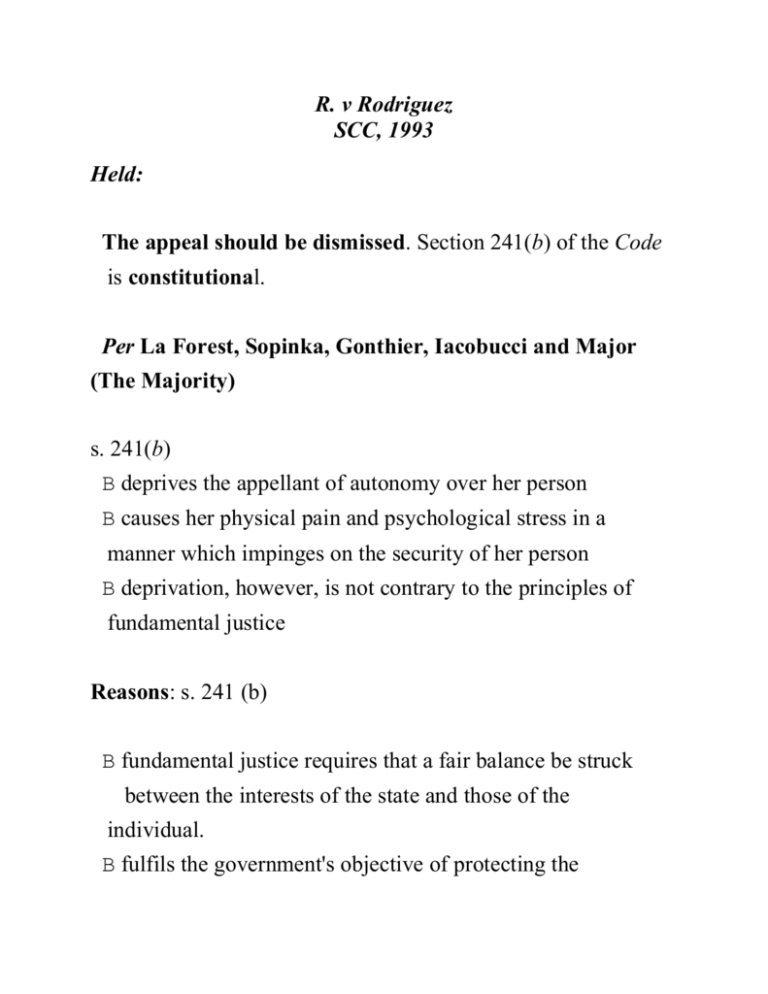
R. v Rodriguez SCC, 1993 Held: The appeal should be dismissed. Section 241(b) of the Code is constitutional. Per La Forest, Sopinka, Gonthier, Iacobucci and Major (The Majority) s. 241(b) B deprives the appellant of autonomy over her person B causes her physical pain and psychological stress in a manner which impinges on the security of her person B deprivation, however, is not contrary to the principles of fundamental justice Reasons: s. 241 (b) B fundamental justice requires that a fair balance be struck between the interests of the state and those of the individual. B fulfils the government's objective of protecting the vulnerable B is grounded in the state interest in protecting life B reflects the policy of the state that human life should not be depreciated by allowing life to be taken. B policy is part of our fundamental conception of the sanctity of life B represents the norm among Western democracies B norm never been adjudged to be unconstitutional or contrary to fundamental human rights B does not infringe s. 7 of the Charter B has a pressing and substantial legislative objective B meets the proportionality test B rationally connected to the purpose of s. 241(b) B attempts to modify approach by creating exceptions or formulating safeguards to prevent excesses have been unsatisfactory B not overbroad since no halfway measure that could achieve legislation's purpose fully B repeal of the offence of attempted suicide from the CCC not a recognition that suicide was to be accepted within Canadian society B merely reflected recognition that criminal law an ineffectual and inappropriate tool for dealing with suicide attempts B in dealing with this contentious, complex and morally laden issue, Parliament must be accorded some flexibility (deference to Parliament) Per L'Heureux-Dubé and McLachlin JJ. (dissenting): B principles of fundamental justice require that each person, considered individually, be treated fairly by the law. B legislative scheme makes suicide lawful but assisted suicide unlawful B effect is to deny to some people the choice of ending their lives solely because they are physically unable to do so, preventing them from exercising the autonomy over their bodies available to other people B arbitrary and hence limit on right to security of the person which does not comport with the principles of fundamental justice B Section 241(b) of the Code is not justified under s. 1 of the Charter B safeguards in the existing provisions of the CCC, supplemented by requirement that a judge be satisfied that consent is freely given, largely meet concerns about consent Per Lamer C.J. (dissenting): B Section 241(b) infringes the right to equality contained in s. 15(1) of the Charter B prevents persons physically unable to end their lives unassisted from choosing suicide when that option available to other members of the public without contravening the law B a burden or disadvantage, since it limits the ability of those who are subject to this inequality to take and act upon fundamental decisions regarding their lives and persons.
